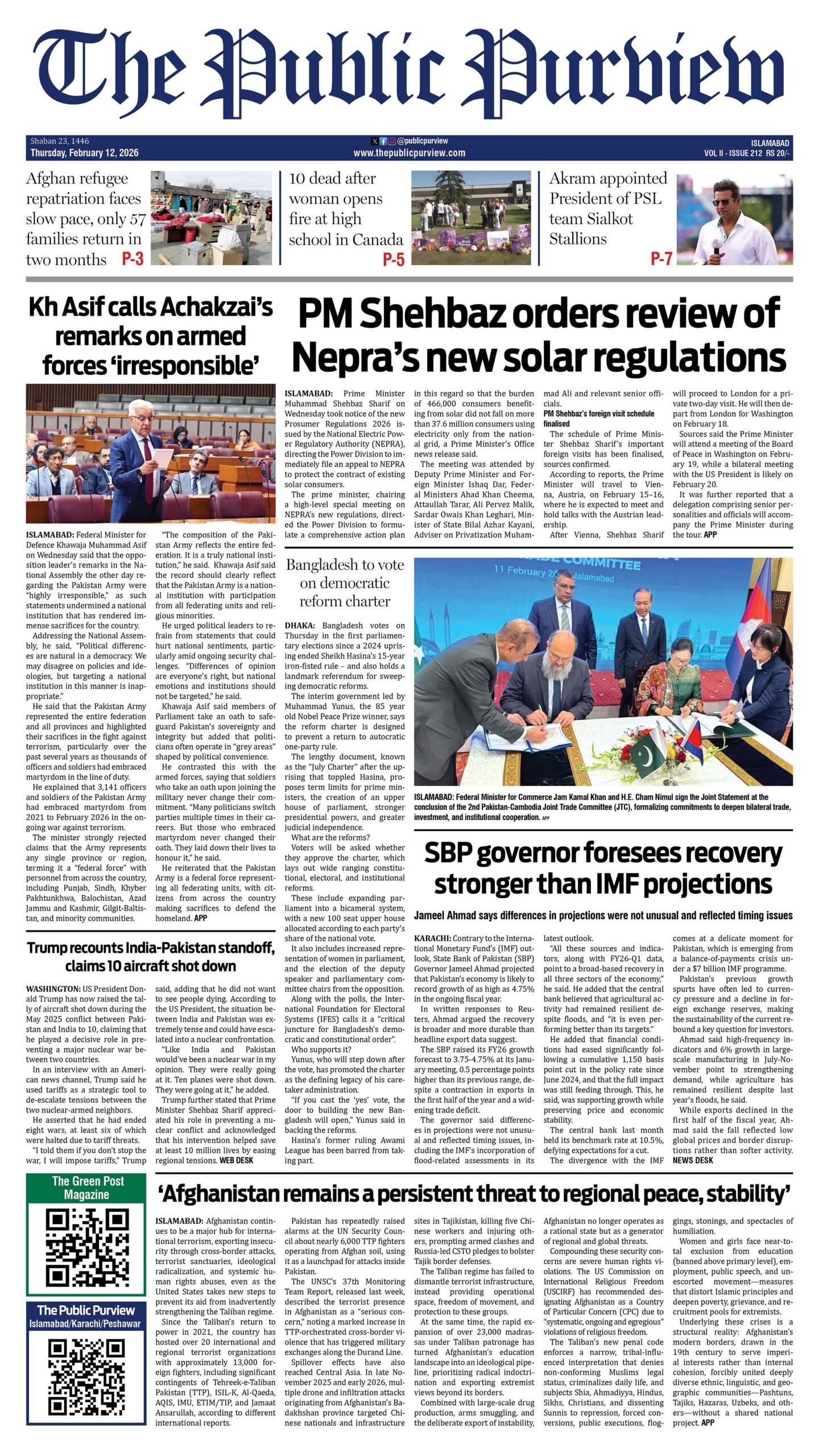The Pakistani State Bank (SBP) reduced its key political rate by 100 Basic points to 12% on Monday, which has been described by the sixth consecutive reduction since June to strengthen the business and economic sentiment because inflation, according to Governor Jameel Ahmed, is constantly alleviating. Governor of the bank said at a press conference that the inflation rate would further alleviate in January, but noted that the basic inflation remained increased and added that the prognosis for year-round inflation in June was an average of 5.5%-7.5%. “Given this development and developing risks, the Committee believed that a cautious attitude of monetary policy, which is necessary for sustainable economic growth, is required to ensure price stability. MPC assessed that the real policy rate must remain reasonably positive, according to the central bank statement to stabilize inflation to the target range of 5-7%. The central bank reduces interest rates from June 2024, which will reduce a total of 1,000 basis points from a record maximum of 22%. This means one of the most aggressive campaigns to reduce rates on emerging markets and overcomes 625 basis points reduced during the COVID-19 pandemic in 2020. Significant decrease The Committee stated that the impact of this significant reduction in the rate from June 2024 will continue to build and further support economic activities. Inflation continued its declining trend in accordance with expectations and reached 4.1%year -on -year in December, the committee noted. “This trend is powered by a suppressed condition of domestic demand and supporting dynamics on the offer side, in the middle of a favorable basic effect,” SBP said in a statement. In December, consumers’ inflation slowed to more than 6-1/2 years of 4.1%, mainly due to a strong growing base. This was under government forecast and in May 2023 significantly below more than 40%. “At the same time, high -frequency indicators continue to show a gradual improvement in economic activity,” he added. GDP growth prognosis Governor said the bank had maintained its year-round GDP growth forecast to 2.5% -3.5% and stated that economic growth would increase in the next six months, which would help strengthen the previously fighting reserves in the country. “Improved views of the current account, along with the expected realization of the planned financial tide, will probably increase SBP reserves over $ 13 billion by June 2025,” the bank said. However, the SBP also emphasized several risks for inflation, including protectionist policies by the “main economies”. The President of the United States Donald Trump said he was considering storing tariffs on goods from several countries. IMF and debt service Upon request, the governor said that all events required by the International Monetary Fund (IMF) from the Central Bank have already been accepted and are convinced that the fund’s review will go as planned. Governor of SBP also stated that this fiscal year had already committed debts of $ 7.3 billion and stressed that further policy changes would not have a major impact on government debt maintenance. He answered the next question and has also ruled out any concerns of the exchange rate. Ahmed said that once the InvestPak platform is running, wide public and corporate companies will be able to directly buy government securities. The Pakistani economy increased by 0.92% in the first quarter of the fiscal year 2024-25, which ends in June, according to data approved by the National Council for Accounts and published by its Statistical Office in December. The Committee noted: “First, the actual GDP growth in Q1-Fy25 has proven to be slightly lower than the earlier MPC expectations. Second, the current account remained in surplus in December 2024, although foreign exchange reserves SBP decreased for low financial influx and high debt. repayments. ” “For a third time, despite a significant increase in December, tax revenues remained under the aim in H1-Fy25. For the fourth time, global oil prices have shown increased volatility in the last few weeks. “In the end, the environment of global economic policy has become more insecure and led central banks to accepting a cautious approach,” the statement said.






 Today's E-Paper
Today's E-Paper